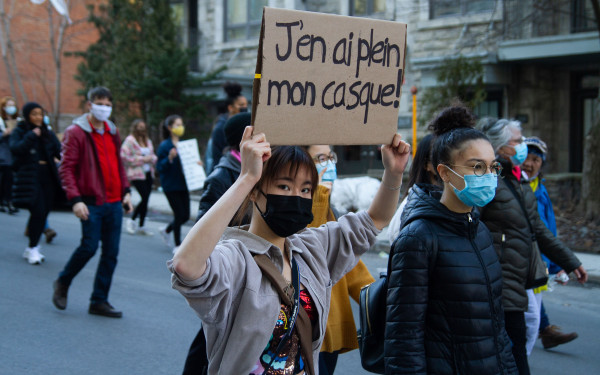Interdisciplinary Studies in Sexuality Major Has Finally Arrived at Concordia
One Year Later, the New Major Has Been Instated
A year later than expected, Concordia’s Simone de Beauvoir Institute has introduced its newest major: interdisciplinary studies in sexuality.
“We live in a world where sexuality is at the forefront of all of our public debates,” said Natalie Kouri-Towe, the new major’s program director. People are changing, and they’re asking themselves questions about their own sexuality, a stark contrast to how it was 30 years ago.
“It’s an exciting time to study sexuality,” she said.
The ever transforming field aims to educate students on sexuality and all of its definitions. Classes will focus on the theory of sexuality, the history of sexuality, and queer theory, among other topics.
“The hope had been they’d submit it and if everything went as hoped, it would have approval later that year,” she said.
After the proposal was initially sent to the provincial government, it was sent back. Revisions had to be made before it was resubmitted.
RelatedKouri-Towe was hired after the proposal was approved in the spring of 2018, and her colleagues were more than happy to have her as a new addition to the institute’s faculty.
“When I started, everybody was like, ‘Finally we have approval!’” she said. “It was a big relief that everybody had been anticipating for a really long time.”
After Kouri-Towe’s hire, she quickly began working, coordinating with different offices in Concordia to ensure that the plans outlined in the initial proposal were being followed.
“It takes about a year to create a program,” she explained.
She also reviewed the existing curriculum, and expanded on it depending on the new courses needs.
“It was a big relief that everybody had been anticipating for a really long time.” —Natalie Kouri-Towe
The existing interdisciplinary studies in sexuality minor served as a foundation for the major. The major and minor follow a similar course calendar for the moment, but in the next academic year the minor’s course calendar will be restructured.
One of the government’s requirements was to hire more faculty to facilitate the classes.
“One professor was hired—me,” she said. “We do have an increasing complement of part-time faculty that have been hired to teach classes. We’re hoping to have more hires in the future, but that’s something that’s out of our control.”
In terms of facilities, the Simone de Beauvoir Institute will be relocated in the next year or so, according to Kouri-Towe.
“We’re going to have a new space, an accessible space. We’ll have a classroom that can fit all of our classes.”
The hope is that with a more welcoming space, more women’s studies and sexuality studies students will have access to the resources found in the institution’s library.
According to Kouri-Towe, there are a total of 49 students in the program, 28 of which are new Concordians. The remaining 21 have switched from other programs. Five students will be joining the program this coming semester.
“The first-year classes cap at 50 students, the second-year classes are capped at 35, and the third-year classes are capped at 25,” she said. “Sometimes you’ll have less than that, but you’d never have more.”
The students enrolled in the program have told Kouri-Towe that they’re looking for more diversity in the curriculum. “Our priority in the future is to see more courses about disability studies and sexuality in Indigenous studies.”

_900_597_90.jpg)




_600_375_90_s_c1.jpg)
